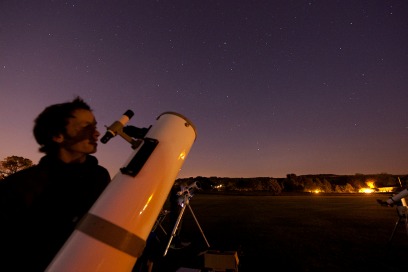Gratitude for the Backyard Astronomer
An annual award recognizes amateurs for finding rocks in the sky
Asteroids asteroids asteroids. Forget exoplanets. If you want to keep up with your space nerd coworkers at the water cooler, you better be up on your rocks-in-space facts. Some people want to mine them. Some people want to visit them. One or two want to smash spaceships full of paintballs into them. (Why not, really?) And then there’s the asteroid we’re all going to watch skim the treetops tomorrow.
But to mine, visit, or save ourselves from them, we have to actually find them first. There are pint-sized telescope networks hard at work and infrared space telescopes gearing up, but there’s still one small group out there plugging away, monitoring the skies, that don’t often make headlines. That’s why the Minor Planet Center at the Smithsonian Astrophysical Observatory gives out the annual Edgar Wilson Awards. The recipients, who get plaques and cash awards, are amateur astronomers who discover comets during the previous year. There were five winning discoverers in 2012, announced in late January: three from Russia, one from Australia, and one hometown skywatcher from Warrenburg, Missouri.
We asked Tim Spahr, the director of the Minor Planet Center, about the motivation for the award, which has been given out since 1999. Spahr thinks the most likely reason was that the widespread use of electronic surveys (the recent discovery of Comet ISON was made with an automated program) was “killing off some of the amateur contributions, and Mr. Wilson wanted to spur them back to their scopes.” If the surveys are making quick work of object discovery, why the need to encourage individuals with their backyard ‘scope and single pair of eyes? Spahr answered:
Right now only 5% of near-Earth asteroid discoveries (and a larger percentage–perhaps 10% of comet discoveries) are made by amateurs. It is very hard to compete with the huge telescopes and software engineers that work at these projects. Still, amateurs do contribute, and they also contribute to follow-up and observing of these objects for orbit refinement.
As the observatory noted in their announcement, “the historical naming of the comet for has more meaning than any award,” but they wanted to recognize the long, unpaid hours these individuals contribute to our knowledge of what’s in the sky.
